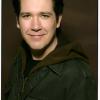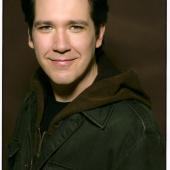What is the Fringe for? 07/31/2013 11:54am
Editorial
My own Fringe experience began in 2004 when I wrote and performed a solo piece that was based on a slice of my own history. In format I was inspired by the great Spalding Gray whose Swimming to Cambodia had been an obsession of mine since high school. I had been working as an actor around town for 8 years and thought it was about time I made my own work. Easier said than done.
For me that year, the Fringe was for expanding myself artistically, challenging myself to take charge of my career, doing something for the first time. Did I harbor a small thought in the back of my vain little brain that maybe it would lead to something larger? Did I imagine someone coming up to me after the show or a week or a month later and offering me something huge? Oh hell yes. I have to imagine among Fringe performers and producers, it’s a common thought.
I don’t recall going to see much at the Fringe that year which leads to an embarrassing admission: I’m not really a Fringe go-er. It has always seemed like a great uphill climb to find the good stuff. There are a whole lot of shows (176 this year) and so many of them seem like long shots at best. It got me curious about why people put themselves out there. What’s in it for them? Do we all imagine fame and fortune at the end of a 5 show run at Rarig Center? What’s the Fringe for?
After looking at the offerings, here are a few theories. Some people are fixtures at the Fringe and are there not only to put on a good or great show, but also to make some money. With a big enough venue and low overhead costs, I imagine one could make a tidy sum with a Fringe hit. Some people are experienced performers looking to expand themselves: actors giving writing a chance, writers risking performing their own work, arts administrators strutting their stuff (2 shows this year!), anyone in the arts looking to step out and try something new. There are people from out of town who are on the Fringe circuit expanding their audience, definitely sharpening their work. There are people who are giving performing a chance for the first time in their lives, encouraged and supported by family and friends. There are people whose shows are about an expression of community more than a pursuit of cash or artistic achievement. And there are dancers. Who knows why they do it.
This year I’ll be seeing more Fringe shows in the festival’s 12 days than I’ve seen in its first 19 years. My fear is that my inner snarky snob will make me sound like a dick. My hope is that I can rise above that. My goal is to meet each show that I see in the spirit in which it is offered, to find out what the Fringe is for by seeing many different kinds of shows made by many different kinds of folks. Let me know if I miss the point.




